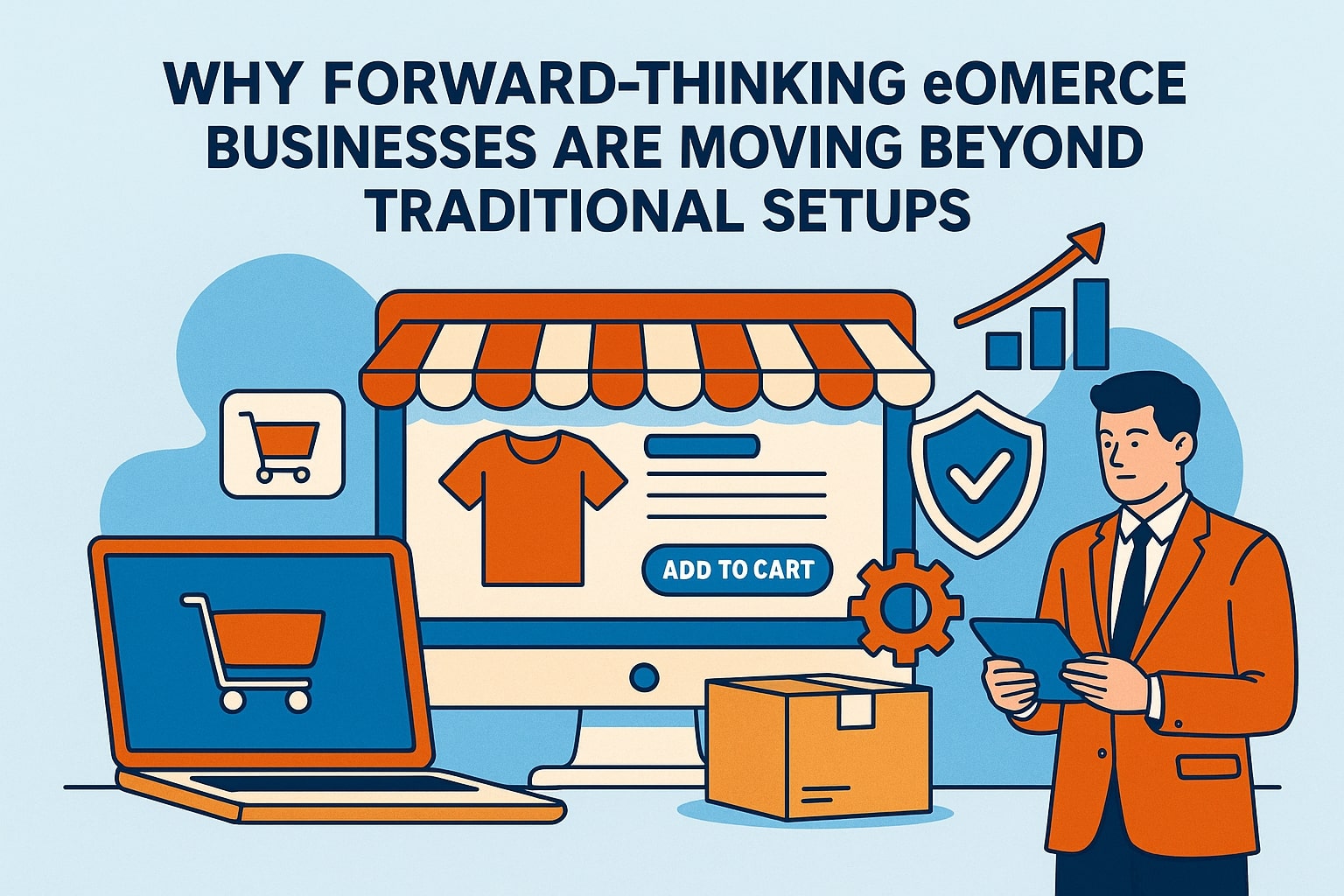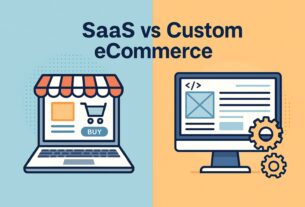Running an online store in 2025 requires more than just a digital presence. While a few years ago, having a website with products listed was enough, today’s shoppers expect faster performance, flexible experiences, and security. Businesses now look at modern methods to meet these expectations without complicating the backend.
One concept gaining serious attention is headless commerce. This method separates the front-end experience from the backend engine. It allows businesses to use any design or user interface while maintaining strong control over product management, order handling, and customer data.
For instance, platforms that adopt this system are discussed in How Headless Commerce is Changing. Many brands, especially mid-sized and enterprise-level businesses, find it gives them the freedom to update designs quickly while maintaining reliable backend systems.
Managing Data and Keeping Customer Trust
Online sales require handling sensitive information such as card details, addresses, and contact numbers. Unfortunately, data theft and security breaches are also common. Businesses that ignore these risks not only lose customer trust but may also face penalties under local regulations.
Keeping a checklist of security practices helps maintain compliance and reduce the risk of cyberattacks. Regular software updates, two-factor authentication, and strict password policies are just the beginning.
There is a well-documented Cybersecurity Checklist For Ecommerce that highlights steps businesses should follow. Applying these measures protects both the business and its customers, maintaining operational continuity even during security threats.
Growth Strategies That Actually Work
While setting up the basics is essential, many business owners want to know how to push sales further. Posting more social media ads is not always the answer. Smart businesses focus on techniques such as personalised shopping experiences, abandoned cart recovery emails, loyalty programs, and optimised checkout processes.
Magento store owners, for example, often implement structured growth strategies that are both repeatable and scalable. These don’t require constant manual effort once set up correctly.
If you’re curious about actionable methods, Powerful Growth Hacks provides examples and guidance specifically suited for Magento-based stores.
Why Headless Commerce Matters for Customer Experience
Many users visit online stores through multiple devices: desktop computers, tablets, and smartphones. Some even use voice assistants or smartwatches. Traditional systems often struggle to maintain consistency across all these touchpoints. Headless commerce gives brands the power to present content uniformly, regardless of the device being used.
Another key point is page speed. By separating the front end from the backend system, businesses reduce unnecessary loading times. This means visitors can browse products, complete purchases, and interact with the store much faster.
Keeping Security and Growth Balanced
There’s always a trade-off between adding new features and maintaining website security. Each plugin, third-party app, or script creates a potential security gap. That’s why growth strategies should never ignore cybersecurity protocols.
A smart business checks all new integrations against its security checklist. By following that approach, brands can increase sales without opening themselves up to unnecessary risks. Whether adding a payment gateway or marketing app, proper reviews and permissions should be part of the process.
How Modern eCommerce Platforms Support Flexibility
Newer eCommerce platforms are built with flexibility in mind. Unlike earlier systems that forced users to work within preset templates, today’s platforms allow more control. Business owners can adjust layouts, change checkout steps, and introduce personalised experiences according to their market’s needs.
For example, a fashion retailer might want to show size charts and fit advice directly on product pages. An electronics store may require detailed specification tables. Both these requirements can be easily met using flexible content management systems backed by a reliable commerce engine.
Lessons From Fast-Growing Online Stores
Observing fast-growing online stores shows a common pattern: they don’t rely on one growth channel. Instead, they combine email marketing, SEO, paid ads, and customer retention strategies.
They also focus on reducing website friction. This means fewer unnecessary pop-ups, easy-to-use navigation, and quick loading pages. Customer feedback is another area where they pay close attention. Reviews, ratings, and direct comments are constantly monitored and used to improve product offerings or services.
Building a Future-Ready Store Without Overcomplication
Many small business owners worry that moving to headless commerce or setting up new security measures might be complicated. But in reality, tools and services exist today that simplify the process.
Platforms like Shopify, Magento, or WooCommerce now offer headless-ready setups with plugins and extensions. Third-party services can handle security audits, while in-house teams focus on product and customer management.
Practical First Steps for Business Owners
If you’re running an online store today and wondering how to take the next step, here are three clear actions you can consider:
-
Evaluate Your Current System
Is your current platform slowing you down? Check page speed scores, bounce rates, and conversion metrics. -
Create a Security Action List
Make sure basic things like HTTPS, secure payment options, and regular software updates are covered. -
Test Small Growth Experiments
Whether it’s a new loyalty program, SMS marketing, or product recommendation system, try adding one new tactic at a time and measure its impact.
Final Thought
The eCommerce world keeps shifting. Businesses that stay static eventually lose out. It doesn’t mean following every new trend blindly. Instead, smart businesses focus on making their stores faster, safer, and easier to shop from. Headless commerce, cybersecurity practices, and steady growth techniques all contribute to building a future-ready store — without adding unnecessary complexity.
Author: Pratik Patel
WEDOWEBAPPS
is
a
leading
USA-based
software
development
company
delivering
end-to-end
digital
solutions
for
enterprises
and
startups.



